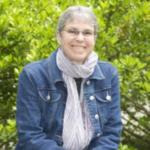Interviewer: Sarah Carroll and Paige Sim
Interview Date: March 15, 2019
Location: Milam Hall, Oregon State University
Duration: 1:18:07
Carson shares her life experiences as a lesbian woman and coming out later in her adult life. She was born in San Francisco in 1953 and shortly thereafter moved with her family to Brunswick, Maine where she grew up with her two sisters. She described what life in Maine and the late divorce of her parents. For Carson, homosexuality was not talked about while she was growing up. Her earliest recollection of questioning stemmed from her first childhood crushes that she described as “really intense friendships.” She then delved into the process of her coming out. While in graduate school, during the summer in New York, she stumbled upon the Pride Parade. Now this was before she was out of the closet, so she found herself participating and chanting but still apologetic about her identity. In Missouri, she worked at Northeast Missouri State (now Truman State University) in the College of Liberal Arts. It was there that Carson had her first recollections of the HIV/AIDS epidemic. She remembers the shock and horror she felt that people her age were dying of this disease. She attributes her hyperawareness of the disease to her generation and a fear that many experienced. While in Corvallis, the anti-homosexual ballots of the 1990s in Oregon added to Carson’s fear. Ballot Measure 8 was in response to Neil Goldschmidt’s order for anti-discriminatory protections for gay and lesbian people. The measure overturned this order, causing fear, hate and joblessness for many people in the LGBT community. Carson noted living in downtown Corvallis and having a campaign poster in her lawn torn down. When she got the opportunity to move to a different area, she did and noted part of her reasoning was from being scared of the hate. Now, the reactionary political climate and the current Donald Trump Administration have focused Carson’s attention on climate change, abortion rights, and preservation of the Supreme Court and Constitution from corruption.
Toward the end of the interview, Carson touches on the importance of music in her life, especially as a coping mechanism. She started writing songs when she was a teenager and to this day uses music to bring all parts of herself together. She describes her relationship with music and songwriting as a hobby that allows her to bring about emotional release and address the things that are important to her, including politics and relationships. The most important parts of life are her kids. In this interview, Carson describes getting a master’s degree at Portland State University in Social Work and trained in psychotherapy and working as a therapist. However, in wanting children, having two careers was simply not viable and returned to the sole career of teaching to be a mother. She describes the process of adoption and parenting and the importance of her children in her life. Throughout the interview, Carson adds important commentary on the way fear has affected her life and her relationships and details her struggles with self-acceptance, doubt, and bravery. She closes the interview with a statement that she realizes she owes her community honesty and the wish that she was bolder and less cautious in owning her identity and strives to be that way.
Dublin Core
Title
Description
Toward the end of the interview, Carson touches on the importance of music in her life, especially as a coping mechanism. She started writing songs when she was a teenager and to this day uses music to bring all parts of herself together. She describes her relationship with music and songwriting as a hobby that allows her to bring about emotional release and address the things that are important to her, including politics and relationships. The most important parts of life are her kids. In this interview, Carson describes getting a master’s degree at Portland State University in Social Work and trained in psychotherapy and working as a therapist. However, in wanting children, having two careers was simply not viable and returned to the sole career of teaching to be a mother. She describes the process of adoption and parenting and the importance of her children in her life. Throughout the interview, Carson adds important commentary on the way fear has affected her life and her relationships and details her struggles with self-acceptance, doubt, and bravery. She closes the interview with a statement that she realizes she owes her community honesty and the wish that she was bolder and less cautious in owning her identity and strives to be that way.

